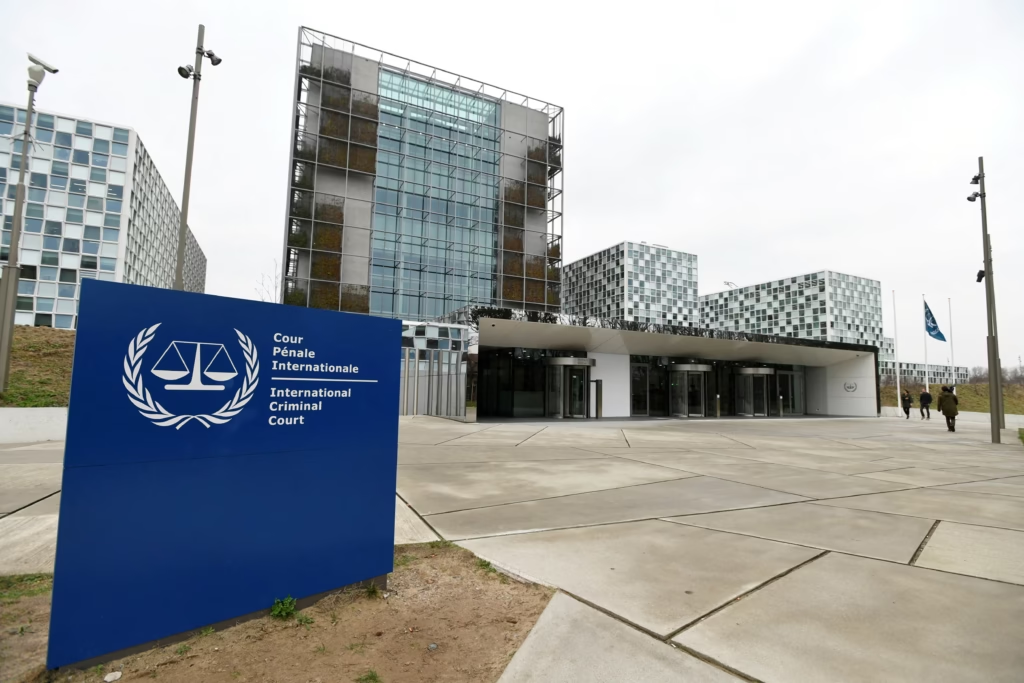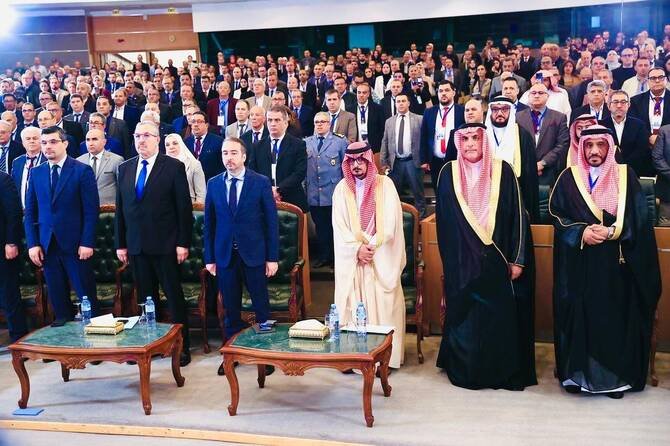
In a reprise of his first-term actions, US President Donald Trump approved travel and economic restrictions on Thursday that target those involved in International Criminal Court probes of US nationals or US allies like Israel.
This comes as Israeli Prime Minister Benajmin Netanyahu, who is wanted by the ICC for the Gaza conflict along with his former defence minister and a Hamas chief, is visiting Washington.
How soon the US would make the names of those sanctioned public was unknown. Washington placed sanctions on then-prosecutor Fatou Bensouda and one of her senior aides in 2020 during the first Trump administration because of the ICC’s investigation into possible war crimes committed by US forces in Afghanistan.
A request for comment was not immediately answered by the ICC. The penalties prohibit the targeted individuals and their families from travelling to the United States and freeze any US assets they may have.
The 125-member ICC is a permanent court with the authority to bring charges against persons for crimes against humanity, war crimes, genocide, and crimes of aggression committed by citizens of member states or against their territory. Israel, China, Russia, and the United States are not members.
After US Senate Democrats last week vetoed a Republican-led attempt to enact legislation establishing a sanctions system targeting the war crimes court, Trump issued the executive action.
According to sources who spoke to Reuters last month, the court has taken steps to protect employees from potential US sanctions by paying salaries three months ahead of time as it prepares for budgetary constraints that may seriously impair the war crimes tribunal.
Judge Tomoko Akane, the president of the court, issued a warning in December that sanctions would “rapidly undermine the Court’s operations in all situations and cases, and jeopardise its very existence.”
The court has also been targeted by Russia. President Vladimir Putin was the subject of an arrest warrant issued by the ICC in 2023 on charges of war crimes related to the unlawful deportation of hundreds of children from Ukraine.
Russia has put ICC head prosecutor Karim Khan and two ICC judges on its wanted list and barred him from entering the country.
Following Trump’s suggestion for the US to annex Gaza, Rubio will travel to the Middle East
According to a State Department official, US Secretary of State Marco Rubio will go to Israel and Arab nations in mid-February. This would be Rubio’s first trip to the Middle East following President Donald Trump’s widely denounced plan to force Palestinians out of Gaza.
The senior State Department official said late Thursday that Rubio will visit Israel, the United Arab Emirates, Qatar, and Saudi Arabia from February 13–18, in addition to attending the Munich Security Conference.
Trump’s proposal that the US take over Gaza would result in the permanent displacement of Palestinians there has been denounced by rights organisations.
Palestinians living in the enclave will need to evacuate in the “interim” as it is rebuilt in the wake of the Israel-Gaza conflict, Rubio stated on Wednesday.
According to the US official, Rubio would follow Trump’s strategy of attempting to upend the status quo in the region and talk about Gaza and the fallout from Hamas’ attacks on Israel on October 7, 2023.
“We cannot maintain the existing quo. It’s similar to washing and rinsing. You get used to it and start to believe that this is the way life is and what we should anticipate. According to the official, President Trump and Marco Rubio think that’s not the case and that things may change.
Both Palestinians and Arab states have rejected Trump’s repeated calls since January 25 that Palestinians in Gaza should be taken in by neighbouring Arab countries like Egypt and Jordan. Trump’s proposal mirrored long-standing Palestinian anxieties about being forced to leave their homes forever.
According to the Gaza health ministry, Israel’s military campaign in Gaza, which is currently halted by a tenuous ceasefire, has killed over 47,000 Palestinians in the past 16 months and sparked claims of war crimes and genocide, both of which Israel denies.
Nearly all of Gaza’s population was internally displaced by the attack, which also resulted in a hunger crisis.




